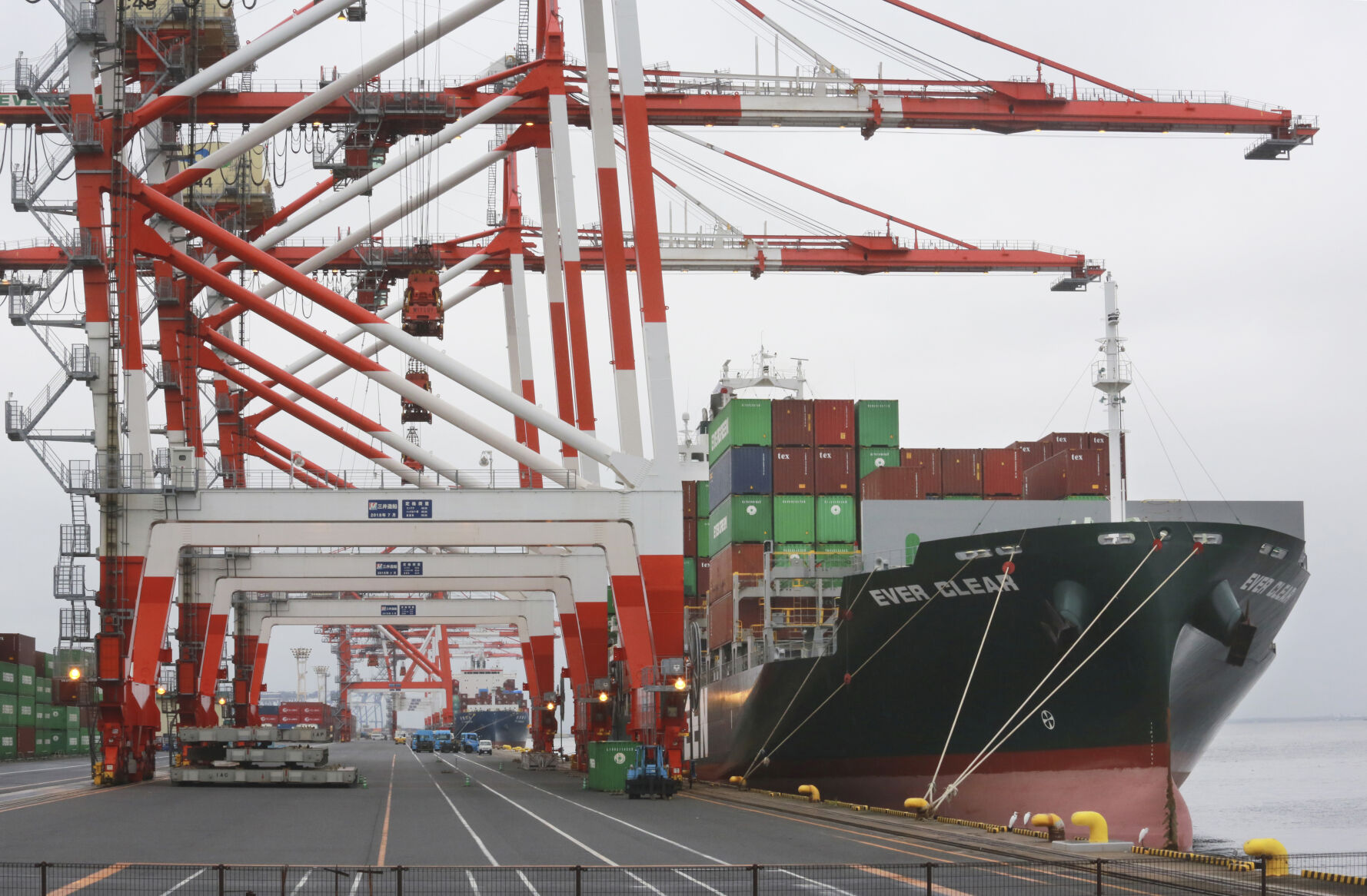TOKYO — Japan racked up a trade deficit of 294.3 billion yen ($2 billion) in September, according to Finance Ministry data released today, as exports fell to key destinations like China.
For the first half of the April to March fiscal year, Japan’s trade deficit, or its imports subtracted from exports, was 3.1 trillion ($21 billion), the preliminary report showed.
Japan’s exports in September fell 1.7% from the same month a year earlier in the first such decline in 10 months. Imports grew 2.1% from the previous year, on the back of a weak yen, which inflates their value.
It was unclear if the drop, which was unexpected, reflected weaker demand in other major economies, since exports to other Asian countries rose. It also could be partly due to temporary disruptions like a recent typhoon.
But slowing global demand remains a long-term worry for export-dependent Japan.
The U.S. dollar has been trading at 149 yen Japanese yen levels recently, not far from its level a year ago but up from about 120 yen two years ago.
Inflation and rising energy prices have also pushed up import costs.
Exports rose 6.6% for the months from April through September to 53.55 trillion yen ($358 billion) as demand remained strong for computer chips.
Imports grew 7% during that period to 56.66 trillion yen ($379 billion), as Japanese businesses and shoppers bought more U.S. products, the report said.
In the first half of fiscal 2024, Japan recorded a nearly 4.3 trillion yen ($29 billion) trade surplus with the United States and a 3 trillion yen ($20 billion) deficit with China.


